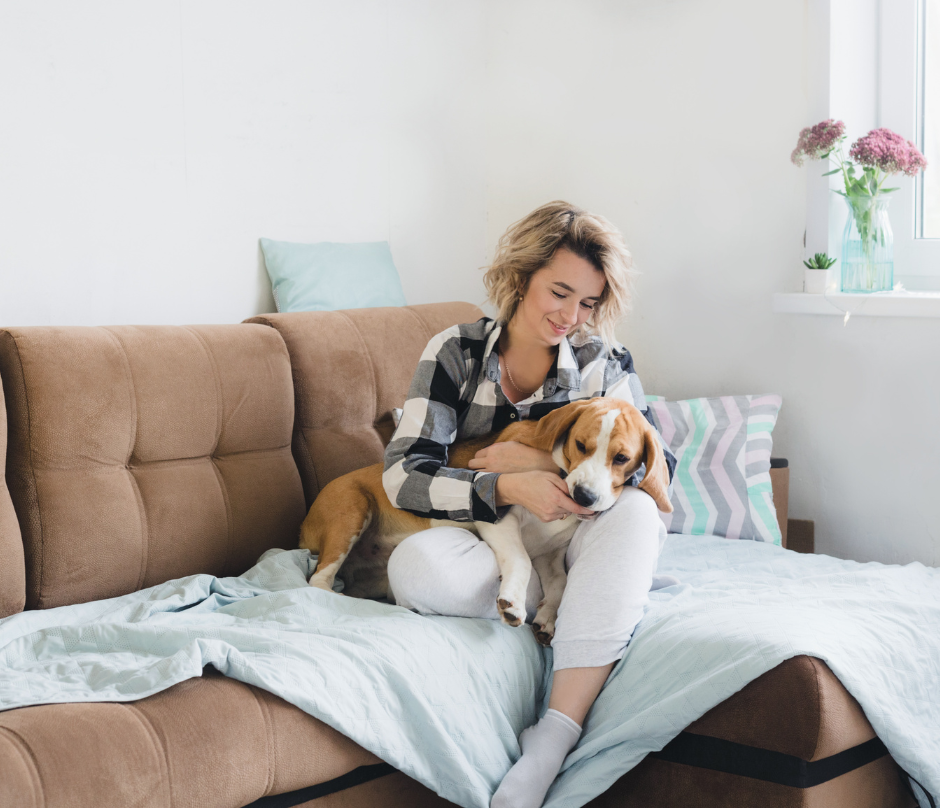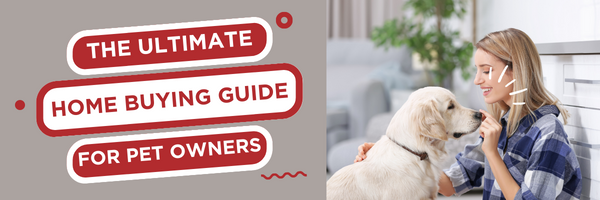When it comes to providing a pet-friendly home for a dog, cat, or other domesticated companion animals, you have likely thought about the needs of such animals. You will incorporate some parts of the home that will increase the quality of life for pets, catering specifically to people who consider their animals to be members of their own families.
In addition, your companions' specifications for a property will impact your judgments about purchasing a home. Furthermore, because the pandemic is still going on, it makes sense to spend money on a brand-new townhouse, condo, apartment, or home that can suit your and your pets' needs.
Millennials, in particular, are putting a lot of emphasis on their desire to have a nicer living environment that they can share with their families, pets, and other loved ones. They are also more receptive to investing in a property that will allow them to adopt and take home a furry friend if they do not already have one. This is because a larger home will give them the ease and freedom to adopt and take home a furry companion.
When looking for the ideal and pet-friendly home, here are some things you should keep in mind, regardless of whether you are a pet owner.
Pet Owner Tips When Buying A Home
-
The Outdoor Space
In particular, for those with characteristics that will keep their dogs secure and content, a home with outdoor space, such as a condo with a balcony or a courtyard, can be highly alluring to home hunters. For instance, if a home already has a fence, the barrier should be strong enough to prevent your pets from exiting the property. There shouldn't be any cracks, crevices, or other hazards in the outside area that could injure the pets.
-
The Square Footage
Although every pet is different and has distinct needs, providing them enough room to play, run, relax, and even hide out for a while is still beneficial.
For example, the amount of space needed for a Great Dane differs from that of a Chihuahua or other toy-sized dog. In contrast, a cat would prefer to live in a townhouse or two-story apartment due to its numerous crevices, such as the stairs, shelving, or banisters.
Also, remember that there are better options than expanding your home. Access to neighborhood parks and gardens will benefit pet owners with energetic canines. An ample-sized condo with a pet area will do as long as you set a time to take them for a stroll so they can stretch and get their daily exercise.

-
A Pet-Friendly Neighborhood
Living in an area that welcomes pets and has pet-friendly facilities is a significant plus for home buyers. A park with a water fountain where pets are welcome to roam freely, and a checkmark next to it will help you cross it off your homebuying must-do list.
The other occupants will be more considerate of you and your furry friends when you move into the house if they are also pet owners. Additionally, if there are other pets in the neighborhood, it will be simpler for your pets to develop social skills. Since these details are more elusive, you can better understand the neighborhood and the local traffic by driving around the chosen region at particular times of the day.
-
Local Pet Regulations And Restrictions For Pet Owners
Before buying a home, check local pet regulations and pet owner restrictions. For instance, living in a town that lets you take your dog to the park and the supermarket for errands is better than staying home or driving to a pet-friendly park.
You should also learn about breed-specific and pet-limit laws in your neighborhood. Condominium owners may have a limit on dogs. A residence with good insulation or soundproof walls will comply with noise ordinances. Some cities require leashing pets when walking them in public. These limits are usually for safety.
-
The Flooring, Layout, And Additional Home Features
Your pet-friendly home's layout, flooring, and other features should reduce wear and tear. Large dogs will deter buyers of open-concept homes, loft-style townhouses, and apartments. So they can handle foot traffic and pets running around. A garden or outside space with a faucet is ideal for bathing pets.
If you have palliative pets or mobility issues, consider a condo. Active pet owners could pick a mid-sized unit with manageable steps and rails. Pet owners should avoid slippery floors. The flooring should also resist scrapes and wear without losing its appearance. Pets can use extra closet space and cubbies for personal storage and supplies.
-
Access To Health Services
Like parents who choose a neighborhood based on a good school district, you should do the same for your dogs. Choose a home close to good veterinary clinics and local pet services for easy pet care. Especially for high-maintenance pets, a pet food store, and grooming service are essential. A good clinic, hospital, or emergency room is also crucial. If you get bitten or scratched, having a medical facility nearby will ensure your health is taken care of.
-
The Sidewalks And Trails
If you purchase a home in a gated and guarded community, you should consider communal amenities, such as pocket gardens, gathering places, and swimming pools. The neighborhood must be kept up, without potholes or exposed sewers.
Additionally, the roads and roadways ought to be secure and accommodate pedestrians. To prevent such incidents, barriers to unapproved places like the electricity box should be implemented. A fantastic choice for a home is not close to a busy road, freeway, or airport, as active pets who enjoy running around and playing run the risk of causing an accident.
Take Note
When searching for a new home, consider how it will affect your pet's life and yours, mainly if the moving is permanent. Contact a real estate specialist for homebuying advice if you don't know where to start.

